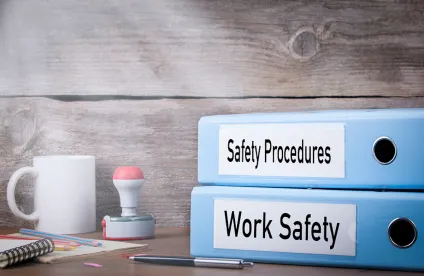On Jan. 26, 2023, the Occupational Safety and Health Administration (OSHA) issued a memorandum to Regional and Area Offices providing guidance when issuing Instance-By-Instance (IBI) citations for “high-gravity” serious violations of Occupational Safety and Health Act (OSH Act) standards.
According to the memorandum, effective March 27, 2023, Regional and Area Offices will have the authority to cite certain types of violations as “instance-by-instance” for cases where OSHA identifies “high-gravity” serious violations. Violations of OSHA’s lockout/tag-out, machine guarding, permit-required confined space, respiratory protection, falls, trenching, and other-than-serious violations related to recordkeeping all are subject to OSHA’s new IBI policy. Notably, these OSH Act standards are among many of the most frequently cited standards.
Stated differently, in certain circumstances OSHA may now issue a citation and corresponding penalty for each instance of alleged non-compliance for each machine, location, entry, or employee. By way of example, if OSHA concludes a worksite has five different machines that lack guarding that exposes employees to workplace hazards like amputations, cuts, or lacerations, OSHA may now cite the employer for five separate serious machine-guarding violations rather than grouping them together in one serious violation. As discussed in our previous Alert, the maximum penalty for a single serious violation is now more than $15,000; five separate machine-guarding citation items could result in a more than $60,000 monetary penalty.
The current IBI policy, which was published more than 30 years ago, is more limited in scope because it allows OSHA to issue IBI citations only for willful-egregious citations, rare citations that require a heightened standard of proof.
When considering whether to use IBI citations, Regional and Area Office must consider whether:
-
The employer has received a willful, repeat, or failure to abate violation within the past five years where that classification is current.
-
The employer has failed to report a fatality, inpatient hospitalization, amputation, or loss of an eye pursuant to the requirements of 29 CFR 1904.39.
-
The proposed citations are related to a fatality/catastrophe.
-
The proposed recordkeeping citations are related to injury or illness(es) that occurred as a result of a serious hazard.
Further, OSHA’s guidance explains that IBI citations may be applied when the text of the relevant standard allows (e.g., per machine, location, entry, or employee) and when the instances of a violation cannot be abated by a single method of abatement.
On the same day OSHA issued its memorandum announcing changes to its IBI policy, it issued a separate memorandum reminding Regional Administrators and Area Directors of their authority to use their discretion not to group violations in appropriate cases to achieve a deterrent effect. Generally speaking, OSHA groups violations when the same abatement measures correct multiple violations and/or when there are substantially similar violative conditions. Grouping violations significantly reduces the monetary penalty associated with OSHA citations.
OSHA’s new IBI policy is another example of OSHA’s continued efforts to use enforcement (“sticks” rather than “carrots”) to deter employers from exposing employees to unsafe working conditions. With the effective date of OSHA’s new IBI policy quickly approaching, employers would be wise to double-down on their efforts to comply with OSHA safety and health standards and ensure their recordkeeping and reporting practices are complying with OSHA’s recordkeeping requirements. Indeed, multiple recordkeeping violations could yield significant monetary penalties under the new IBI policy. Finally, the new IBI policy is yet another reason to carefully evaluate settlement of OSHA citations. The revised IBI policy could increase an employer’s liability if an employer accepts a willful or repeat citation.




 />i
/>i

